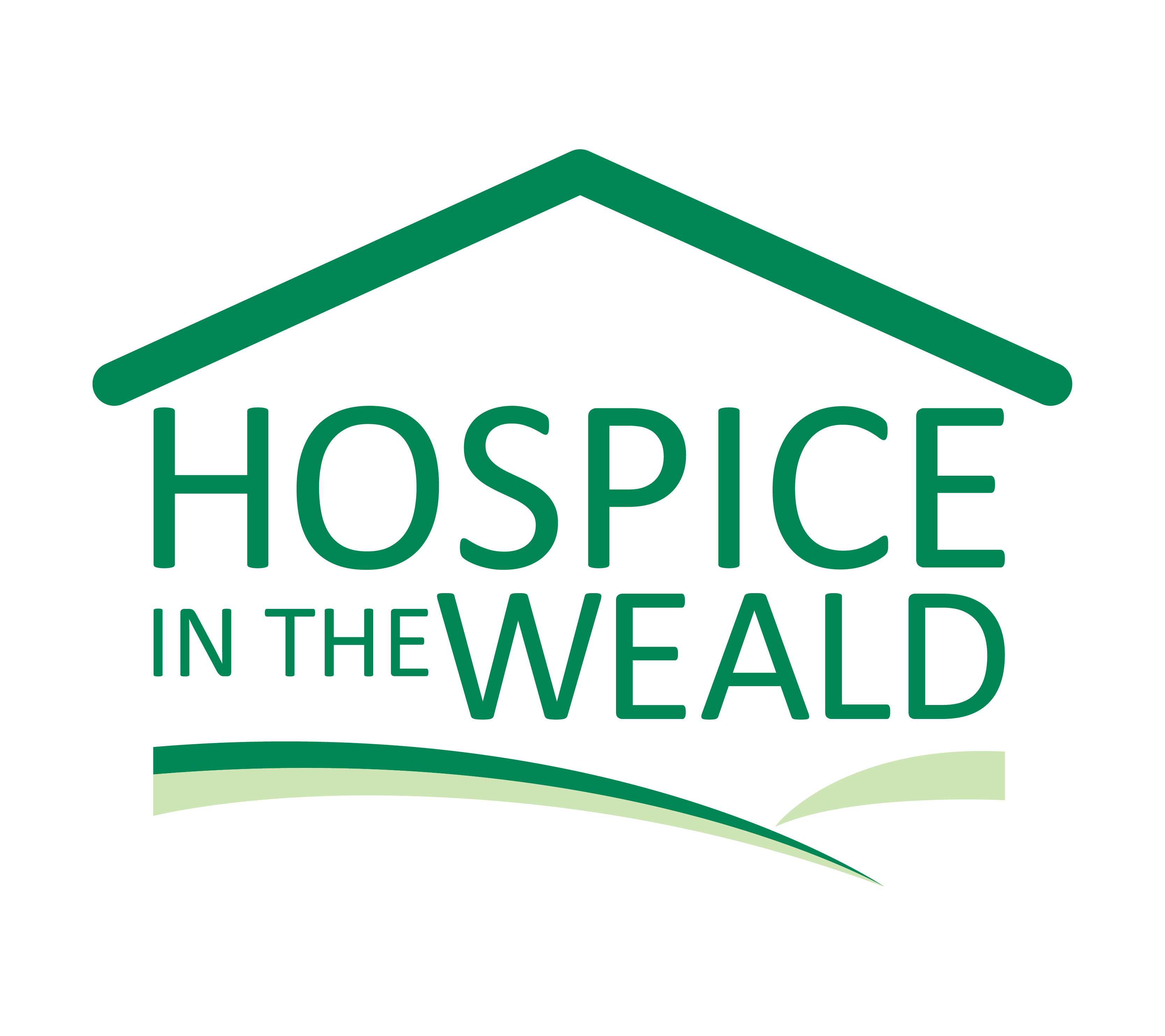Discover the care and support we offer
We provide Hospice care & support to patients and their loved ones living in Kent and East Sussex. Learn more about how we can help you.
If you or someone you love may benefit from Hospice care, you can find out more using the information below. For support or advice at any time of the day or night, please visit our Help Hub.

We provide Hospice care & support to patients and their loved ones living in Kent and East Sussex. Learn more about how we can help you.

Complete one of these short forms and we will contact you. There is no need to wait for a referral from your GP or healthcare professional.
We need to raise over £8 million every year to provide outstanding Hospice care to the local community. To get involved with our fundraising activities, design your own, or make a donation, use the information on this page.
Beverley shares her experiences of living with a terminal illness:

“I’ve come to the Hospice for a couple of years. I used to pop in to Hospice Day Service a couple of times a week, that was how I got to know Hospice in the Weald. The social element of Hospice Day Service is just fantastic.
We have had cancer in my family for many generations and I cared for my mum, uncle and grandmother. I nursed them until they died. So I know what caring for someone is like, I know how it works when someone dies. And I know what a Hospice is and how it can help. So I wasn’t afraid when I first came to the Hospice, which is perhaps unusual.
I wasn’t really surprised when I was diagnosed with cancer, either. It’s in our family history. But it was a surprise to John, my partner, and it’s taken him a long time to come to terms with it.
My good friend Alana helps me. She’s been there since the beginning. The beginning was a lung cancer diagnosis. I had surgery to have half my lung removed in 2015. But after that, the cancer came back. I’ve got COPD and other complications, which makes it very difficult. I usually take things in my stride, but coming to terms with all of this was very hard.
I went through a very harsh chemotherapy regime to tackle the lung cancer. The first round was OK, but at the second round, I just wasn’t strong enough physically or mentally. I made the decision not to continue with the treatment, and I told my family “I’ve had enough of that”. Since then I’ve been offered immunotherapy too, but I declined. I know I’m terminally ill. These treatments won’t change that.
So I decided to come to terms with it instead. We are all born to die. Nobody talks about it, but it’s the truth. All of us will die one day. I don’t want to upset people, so often I joke about it. But I do talk about it– there’s nothing else I can do.
When my son James phones me, I speak openly about how I’m doing. I say to him ‘I am going to die, I don’t know how long I’ve got left.’ We’ve spoken about what will happen after I die, so he is prepared. It helps that I can be so honest with him. For me, it’s paramount that he is as prepared as possible. There are a few projects he’s helping me with now too. I have a library of books that I want to sell, and donate the proceeds to the Hospice.
It’s hard for people when you are open about death and dying. Often, I think they don’t know what to say. But people need to hear it, whether they want to or not. I have a need to tell those close to me.
My focus now is on getting everything in order and putting things in place to help those close to me. I’ve got a DNR (Do Not Resuscitate) form in place and my friends and family know about it. I have joked with my partner John that when we both wake up in the morning, we ask each other what day it is. So I’ve bought him two clocks that show the day, one for upstairs and one for downstairs. So when I’m gone and he can’t ask me, he’ll still know. I’ve said to him, “when people die, they look different. I won’t look like I do now.” I don’t want it to be a shock to him. I joked “you might fancy me again!”.
We speak openly, I have asked him if he minds me dying at home. It’s his home too and he should have a say in the memories that are there. But he says to me “whatever you want”. I want to die at home with him and my dogs. And I don’t want him to stop doing what he’s doing. He loves racing cars, and I insist he keeps going to race meetings. He mustn’t stop living because I’m going to die. He’s got to continue his life after me. I’m very independent anyway, and my dear friend Alana always helps me too.
I did want to go to the beach, to the cockle sheds, to smell the sea air and have lobster. Many of my friends are there and I want to see them. But I’m not well enough to go now. But my friends all know I am going to die, and that I want to see them before that happens.
Generally, I try not to worry, although I do a bit about my dogs and how they will be. I have two German Shepherds and they are part of my family. I want to make sure the freezer is full for John, and things are in place for the dogs, for when I’m gone.
Staying on the ward has been a new experience for me. The staff and volunteers are just brilliant. You only need to ask for anything and they are there. Everyone is so friendly. There are facilities and support you can’t get anywhere else, and the Hospice is much more family orientated. They aren’t just trying to fix you and send you on your way, like a hospital.
It’s a tough thing, dying. But it isn’t painful. Some people have conditions that make it painful, but the Hospice helps with that. Dying itself isn’t painful. But it’s tough. I try to be pragmatic, and I like people to know that they should talk about it. The Hospice is a big part of that.


